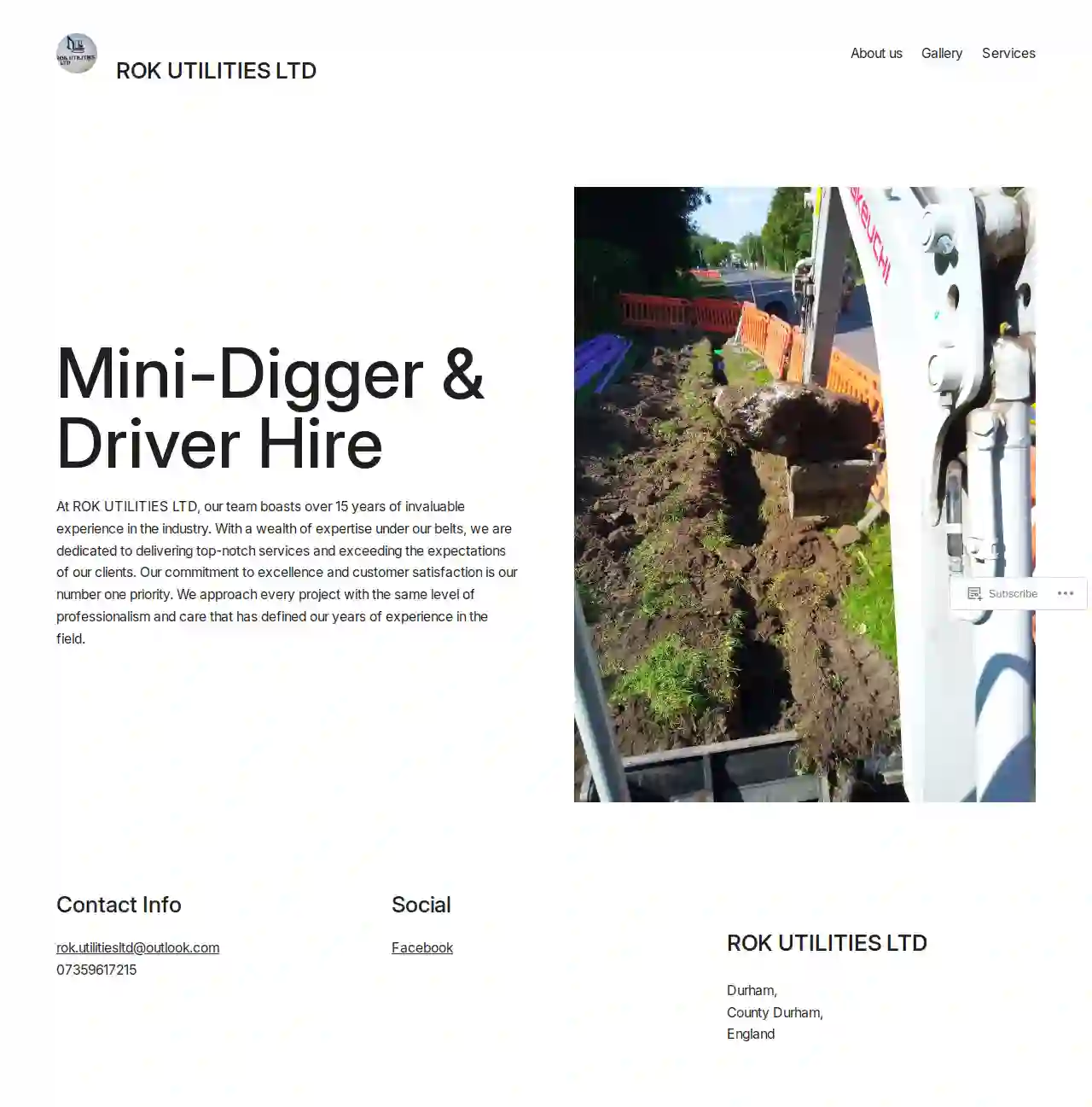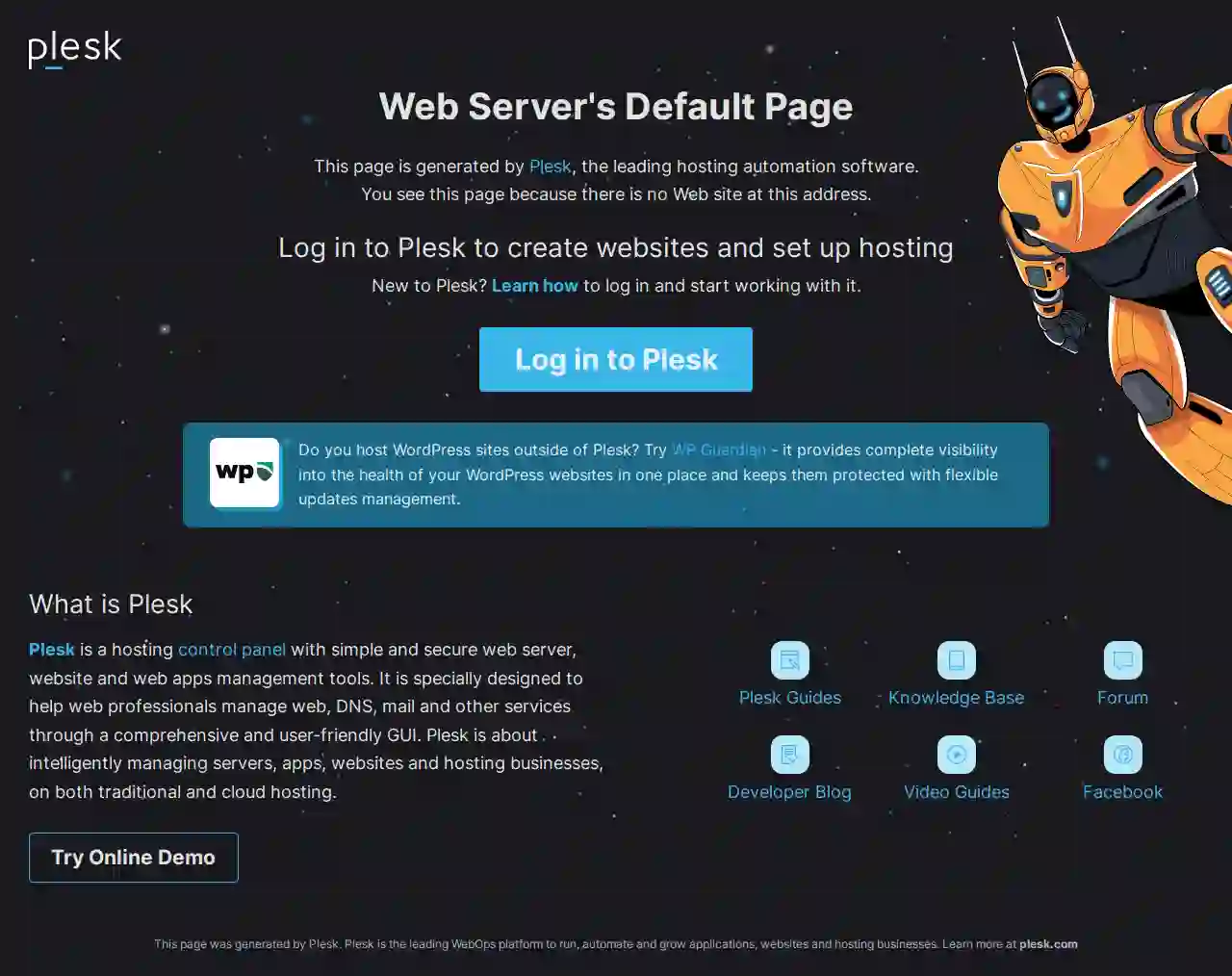Excavation Contractors South Hetton
Find top Excavation Companies in South Hetton
Receive up to 3 Excavation Services quotes for your project today! Compare profiles, reviews, accreditations, portfolio, etc... and choose the best deal.

Rok utilities ltd
51 reviewsDurham, County Durham, GBAbout ROK UTILITIES LTD At ROK UTILITIES LTD, our team boasts over 15 years of invaluable experience in the industry. With a wealth of expertise under our belts, we are dedicated to delivering top-notch services and exceeding the expectations of our clients. Our commitment to excellence and customer satisfaction is our number one priority. We approach every project with the same level of professionalism and care that has defined our years of experience in the field.
- Services
- Why Us?
- Gallery
Get Quote
G M H Mini Plant Hire & Groundworks
High Hillside Farm, Houghton Le Spring, DH5 8BG, GBWelcome to G M H Mini Plant Hire & Groundworks, a trusted family-run business with a proud 9-year legacy. Serving Newcastle, Houghton Le Spring and beyond, we have earned an excellent reputation for plant hire and groundworks excellence. At G M H Mini Plant Hire & Groundworks, we provide professional and swift service, always maintaining the highest quality standards. Our communication with customers is exceptional, ensuring a smooth experience from beginning to end. A guarantee of superior work backs each project we undertake. Our business thrives on customer satisfaction and positive referrals. With a history of inventive designs, effective problem-solving, and attention to detail, we aim to meet and surpass the expectations of every customer. From minor domestic tasks to extensive commercial projects, we handle each job with precision and care. We are also proud members of the Construction Plant-Hire Association and hold certifications like the First Aid Awards Ltd Emergency First Aid at Work Level 2 Award and the Construction Skills Certification Scheme.
- Services
- Why Us?
- Accreditations
- Testimonials
- Gallery
Get Quote
JW Plant Hire & Excavation
54 reviewsDurham, GBJW Plant Hire & Excavation We are a reliable and hardworking family run business, located in County Durham. Providing excavation services and micro plant machinery hire, in and around the North East of England. I'm committed to providing a high standard of service. No matter the size of the job, I guide my clients every step of the way and offer highly competitive rates. Take a look at my services below and call me today to schedule an initial consultation.
- Services
- Why Us?
- Gallery
Get Quote
Brambledown Landscape Services Ltd
12 reviewsDurham, GBWelcome To Brambledown Brambledown Landscape Services Ltd have 50 years experience in providing Award winning commercial Landscape Environmental Improvement schemes across the UK. Our specialist Landscape work has vastly improved numerous public spaces, particularly Historic Parks, Community gardens, National Parks, Botanical Gardens and Town Parks. Recognising the time and money spent invested in these projects, Brambledown Landscapes have ensured that every Environmental Improvement scheme that we are involved in, meets our strict high level quality procedures in line with Achilles Building Confidence Level 4 Status, ISO 9001, Constructionline Gold & CHAS.
- Services
- Why Us?
- Gallery
Get Quote
GROUNDWORKS DIRECT LTD
2.712 reviewsDurham, GBWhat is Plesk? Plesk is a hosting panel with simple and secure web server, website and web apps management tools. It is specially designed to help web professionals manage web, DNS, mail and other services through a comprehensive and user-friendly GUI. Plesk is about intelligently managing servers, apps, websites and hosting businesses, on both traditional and cloud hosting.
- Services
- Why Us?
Get Quote
Herrington Landscapes Ltd
522 reviewsDurham, GBHERRINGTON LANDSCAPES Bespoke garden design & installation With over 14 years of experience Herrington Landscapes can work with you to create a bespoke garden design & installation. Let us take care of your dream garden.
- Services
- Why Us?
- Testimonials
- Gallery
Get Quote- Le
Les Brown Excavating Ltd.
55 reviewsDurham, GB- Services
- Why Us?
Get Quote - Ni
Nicholsons Plant hire
4.510 reviewsDurham, GB- Services
- Why Us?
Get Quote - Wi
Wilf Husband
4.68 reviewsDurham, GB- Services
- Why Us?
Get Quote - Bi
Bishop Middleham Quarry
4.766 reviewsDurham, GB- Services
- Why Us?
Get Quote
Over 13,059+ Excavation Companies in our network
Our excavation experts operate in South Hetton and surrounding areas!
ExcavationHQ has curated and vetted the Best Excavation Companies near South Hetton. Find a reliable business today.
Frequently Asked Questions About Excavation Contractors
- Project Size and Scope: Larger, more complex excavations naturally take longer.
- Soil Conditions: Rocky or challenging soil types can slow down progress.
- Site Accessibility: Limited access might require more time for maneuvering equipment and hauling materials.
- Weather: Inclement weather can cause delays.
- Permitting and Inspections: Waiting for permits or inspections can extend the timeline.
- Project Size and Scope: The larger and more complex the excavation, the higher the cost.
- Soil Type: Different soil types require different equipment and techniques, impacting costs. Rocky or clay-rich soil can be more expensive to excavate than loose soil.
- Accessibility: Difficult-to-access sites might require specialized equipment or additional labor, increasing expenses.
- Disposal Costs: Hauling away excavated material (soil, rocks, etc.) to disposal sites incurs additional fees.
- Permits and Inspections: Depending on local regulations, permits and inspections might be required, adding to the overall cost.
- Clearly Define the Scope: Outline the project's goals, including the excavation area, depth, grade, and intended use.
- Obtain Necessary Permits: Research and acquire any required permits from your local authorities.
- Mark Utility Lines: Contact your utility companies to locate and mark underground utilities to prevent damage.
- Communicate with Neighbors: Inform your neighbors about the project's timeline and potential noise or disruptions.
- Prepare the Site: Clear any obstacles, such as vegetation, furniture, or structures, from the excavation area.
- Discuss Safety Protocols: Review safety procedures with the contractor to ensure a safe work environment.
- Sloped Property: Your property has a significant slope, making it prone to soil erosion or landslides.
- Creating Usable Space: You want to level off a sloped area to create a flat surface for patios, gardens, or other outdoor spaces.
- Preventing Damage: Erosion is threatening existing structures, driveways, or walkways.
- Landscaping Features: You're incorporating tiered gardens, raised beds, or other landscaping elements requiring soil retention.
How long does an excavation project take?
How much does excavation cost?
What should I do before excavation starts?
How do I know if I need a retaining wall?
How long does an excavation project take?
- Project Size and Scope: Larger, more complex excavations naturally take longer.
- Soil Conditions: Rocky or challenging soil types can slow down progress.
- Site Accessibility: Limited access might require more time for maneuvering equipment and hauling materials.
- Weather: Inclement weather can cause delays.
- Permitting and Inspections: Waiting for permits or inspections can extend the timeline.
How much does excavation cost?
- Project Size and Scope: The larger and more complex the excavation, the higher the cost.
- Soil Type: Different soil types require different equipment and techniques, impacting costs. Rocky or clay-rich soil can be more expensive to excavate than loose soil.
- Accessibility: Difficult-to-access sites might require specialized equipment or additional labor, increasing expenses.
- Disposal Costs: Hauling away excavated material (soil, rocks, etc.) to disposal sites incurs additional fees.
- Permits and Inspections: Depending on local regulations, permits and inspections might be required, adding to the overall cost.
What should I do before excavation starts?
- Clearly Define the Scope: Outline the project's goals, including the excavation area, depth, grade, and intended use.
- Obtain Necessary Permits: Research and acquire any required permits from your local authorities.
- Mark Utility Lines: Contact your utility companies to locate and mark underground utilities to prevent damage.
- Communicate with Neighbors: Inform your neighbors about the project's timeline and potential noise or disruptions.
- Prepare the Site: Clear any obstacles, such as vegetation, furniture, or structures, from the excavation area.
- Discuss Safety Protocols: Review safety procedures with the contractor to ensure a safe work environment.
How do I know if I need a retaining wall?
- Sloped Property: Your property has a significant slope, making it prone to soil erosion or landslides.
- Creating Usable Space: You want to level off a sloped area to create a flat surface for patios, gardens, or other outdoor spaces.
- Preventing Damage: Erosion is threatening existing structures, driveways, or walkways.
- Landscaping Features: You're incorporating tiered gardens, raised beds, or other landscaping elements requiring soil retention.